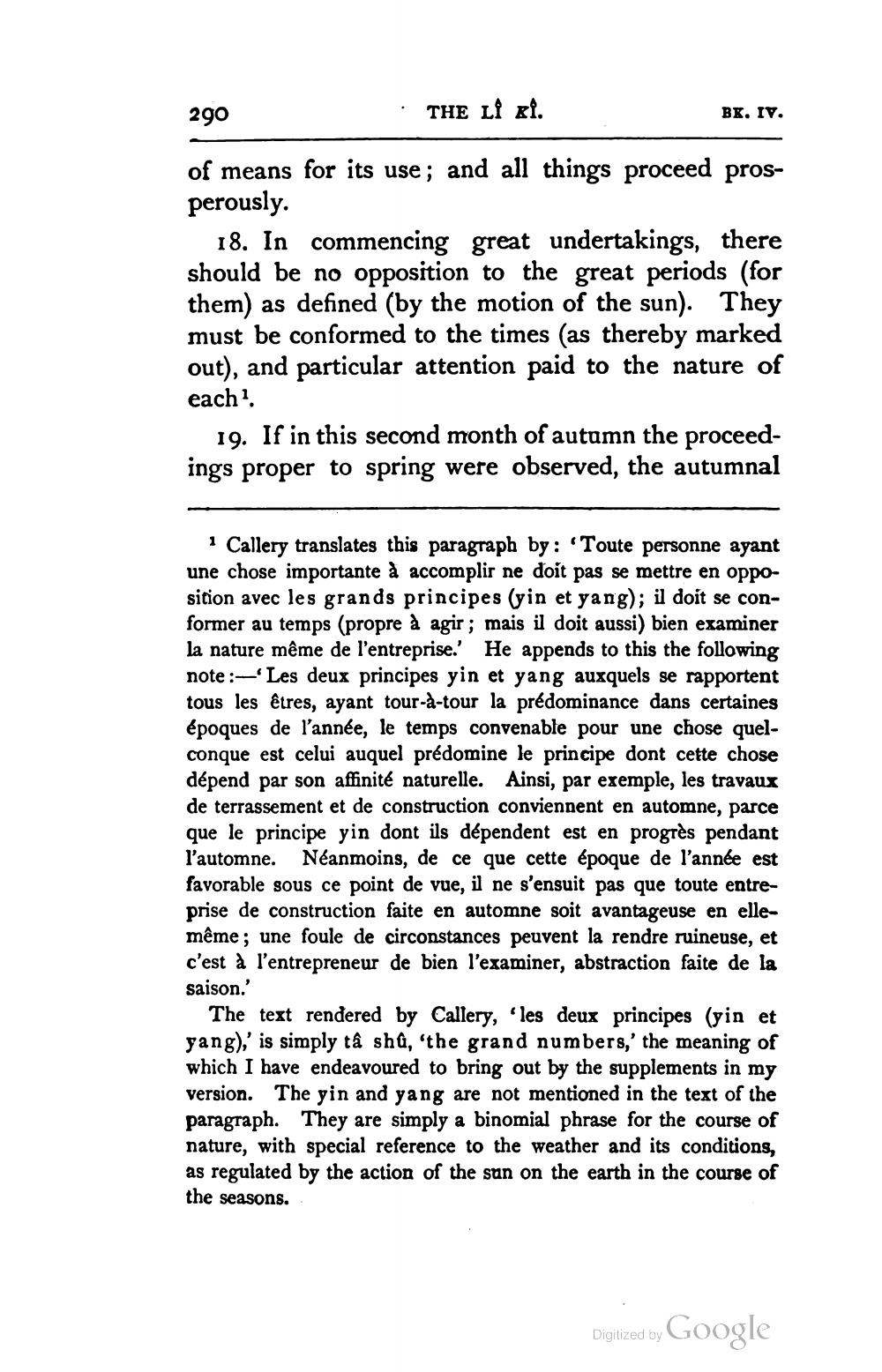________________
290
• THE LÎ ki.
BK. IV.
of means for its use; and all things proceed prosperously.
18. In commencing great undertakings, there should be no opposition to the great periods (for them) as defined (by the motion of the sun). They must be conformed to the times (as thereby marked out), and particular attention paid to the nature of each?
19. If in this second month of autumn the proceedings proper to spring were observed, the autumnal
Callery translates this paragraph by : Toute personne ayant une chose importante à accomplir ne doit pas se mettre en opposition avec les grands principes (yin et yang); il doit se conformer au temps (propre à agir ; mais il doit aussi) bien examiner la nature même de l'entreprise.' He appends to this the following note :- Les deux principes yin et yang auxquels se rapportent tous les êtres, ayant tour-a-tour la prédominance dans certaines époques de l'année, le temps convenable pour une chose quelconque est celui auquel prédomine le principe dont cette chose dépend par son affinité naturelle. Ainsi, par exemple, les travaux de terrassement et de construction conviennent en automne, parce que le principe yin dont ils dépendent est en progrès pendant l'automne. Néanmoins, de ce que cette époque de l'année est favorable sous ce point de vue, il ne s'ensuit pas que toute entreprise de construction faite en automne soit avantageuse en ellemême ; une foule de circonstances peuvent la rendre ruineuse, et c'est à l'entrepreneur de bien l'examiner, abstraction faite de la saison.'
The text rendered by Callery, 'les deux principes (yin et yang),' is simply tâ shû, 'the grand numbers,' the meaning of which I have endeavoured to bring out by the supplements in my version. The yin and yang are not mentioned in the text of the paragraph. They are simply a binomial phrase for the course of nature, with special reference to the weather and its conditions, as regulated by the action of the sun on the earth in the course of the seasons.
Digitized by Google




